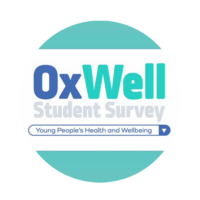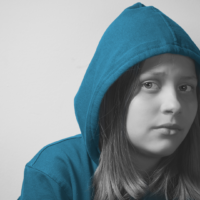Non-Suicidal Self-Injury (NSSI)
-

An Increasing Concern: Improving Self-Harm and Self-Injury Awareness
If you or a person you know is struggling with their mental health, please seek support by accessing the helplines and resources provided by the NHS website. For those outside the UK please use an internet search to find an organisation that can offer direct support.
1 March is globally recognised as Self-Harm and Self-Injury Awareness Day and serves as an opportunity to raise awareness, encourage an understanding, and promote more conversations around the topic of self-harm and self-injury. We encourage you to explore the learning opportunities available on our website and do please share with your networks and colleagues.
Read more -

Self-harm Behaviours and Loneliness: Insights from the OxWell Student Survey
TRIGGER WARNING: Please be aware that this podcast explores themes around the topic of self-harm.
The ‘Insights from the OxWell Student Survey‘ series is a new mini-in conversation series that will explore the OxWell study and the impact of its findings for parents, teachers, policymakers and mental health professionals.
In this episode, Dr. Galit Geulayov and Dr. Rohan Borschmann comment on the findings from the OxWell survey regarding self-harm behaviours as well as informal and formal support for adolescents who self-harm.
Read more -

Micro-sequences of anger and shame and non-suicidal self-injury in youth: an ecological momentary assessment study
Paper from the JCPP – ‘In this study, we focused on in vivo anger at self and others and shame and NSSI among 158 adolescents 3 weeks following their psychiatric hospitalizations using ecological momentary assessment (EMA) technology’. Anastacia Y. Kudinova (pic) et al.
Read more -

Self- and co-regulation of physiological activity during mother-daughter interactions: The role of adolescent NSSI (Non-Suicidal Self-Injury)
Paper from the JCPP – ‘The current study examined self- and co-regulation of physiological responses during mother-daughter interactions in adolescent girls with and without a history of non-suicidal self-injury (NSSI)’. Kiera M. James (pic) et al.
Read more -

The TEENS randomised feasibility trial: Internet based intervention for non-suicidal self-injury in adolescents
In this Papers Podcast, senior researcher Dr. Britt Morthorst discusses her JCPP Advances paper ‘Internet based intervention (Emotion Regulation Individual Therapy for Adolescents) as add-on to treatment as usual versus treatment as usual for non-suicidal self-injury in adolescent outpatients: The TEENS randomised feasibility trial’.
Read more -

‘Suicide and self-harm; The Research, The Evidence, The Interventions’ Emanuel Miller Memorial International Online Conference
Delegates Only. A critical topic that all those working in the field of child and adolescent mental health should know about. Learn about the latest research, the different types of interventions, and the evidence base that supports this.
Read more -

Research Review: Autonomic dysregulation and self-injurious thoughts and behaviours in children and young people: A systematic review and meta-analysis
Open Access paper from JCPP Advances – ‘Self-injurious thoughts and behaviours (SITBs) have been associated with dysfunction of the Autonomic Nervous System (ANS) in children and young people, suggesting that objective ANS measures may aid assessment of suicide risk, but a systematic synthesis of this literature is currently lacking.’ Alessio Bellato (pic) et al.
Read more -

A qualitative study of young people’s lived experiences of suicide and self-harm: intentionality, rationality and authenticity
Open Access paper from the CAMH journal – ‘Using semi-structured interview methods and reflexive thematic analysis, this study explores how 24 young people aged 16–24 in Scotland, UK made sense of their lived experiences of suicidal thoughts and feelings, self-harm, and suicide attempts.’ Hazel Marzetti (pic) et al.
Read more -

Review: Interventions to prevent or manage self-harm among students in educational settings – a systematic review
Open Access paper from the CAMH journal – We conducted a systematic review of five databases (Medline, PsycINFO, ASSIA, ERIC and BEI) for quantitative studies evaluating interventions to reduce self-harm among students in schools, colleges and universities. Rasanat Fatima Nawaz (pic) et al.
Read more -

Internet based intervention (Emotion Regulation Individual Therapy for Adolescents) as add-on to treatment as usual versus treatment as usual for non-suicidal self-injury in adolescent outpatients: The TEENS randomised feasibility trial
Open Access paper from JCPP Advances – “We assessed the feasibility of Internet based Emotion Regulation Individual Therapy for Adolescents (ERITA) in psychiatric outpatients aged 13–17 years who engaged in NSSI”. Britt Morthorst et al.
Read more
